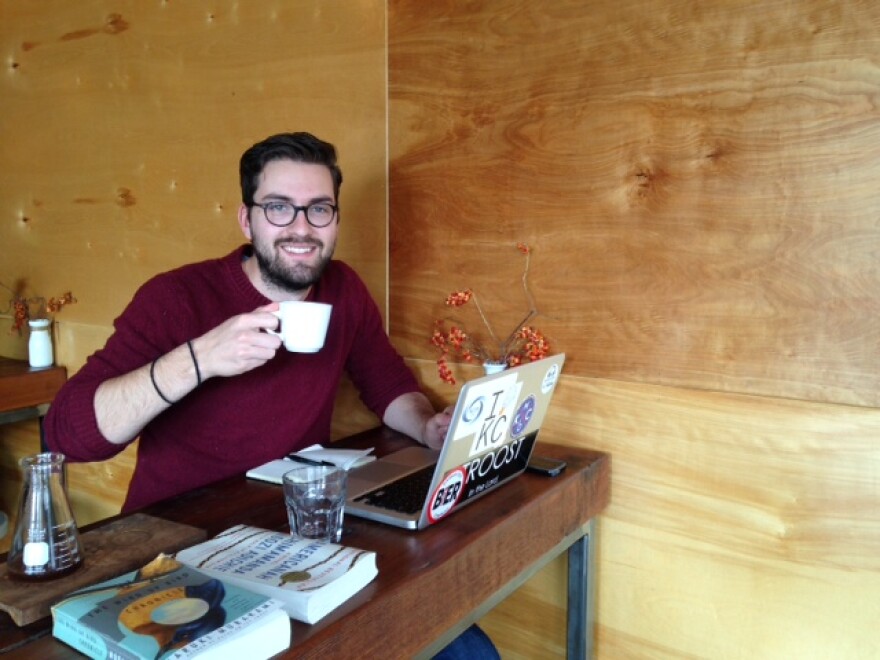Knowing the story behind your digestibles is a popular trend in the food world, and coffee is no exception.
The roasters, shop owners and baristas who subscribe to the idea that coffee is a delicacy to be handled with precision, ritual and care are participating in a wave of coffee culture known as the "third wave."
The first wave in coffee is the vacuum-sealed tin-can variety from a large factory, for anyone to brew in any old coffee machine. The second wave is characterized by Starbucks, which many credit with introducing the idea of coffee as a specialty item.
Third wave coffee, according to Kansas City barista Pete Licata, who won the World Barista Championship in 2013, is the current coffee movement, spearheaded by people who are "trying to connect with the farmers and develop a product that they not just have control over, but are able to make sustainable."
Take, for example, what Licata thinks set him apart from the competition in the 2013 world championship:
"There's a farmer who worked really hard on this coffee, they did all kinds of farming practices and tried to do everything they could in order to make it great. As a barista, I need to be able to represent that, know everything about it, and be able to make it to its fullest potential. And the same story with the roaster. ... Ultimately I had a unique story that was a little bit more humble of saying, 'It's not all about me actually, it's about a lot of people inside of this coffee industry."
Oddly Correct, at the corner of Westport Road and Main Street, is probably the most clear-cut manifestation of third wave coffee in town. It's quickly becoming a Kansas City institution, gaining notoriety for its uniquely purist approach.
The tasting room, which serves three coffees a day without accoutrements, might strike some as particular to the point of being inhospitable, but owner and roaster Gregory Kolsto is all about hospitality. He tries to emphasize what he does to, taking the focus away from what he doesn't do.
"Anybody now seeking specification in the industry is perceived a certain way, which is fine, that's life," says Kolsto. "We're hoping to be able to set a stage and a context for experiencing coffee in a new way."
If it sounds like he expects to be called a pretentious hipster, that's because people do call him that, and he knows it.
"We talk a lot about giving the finger to the status quo," he says. "Even in our own minds. Especially in our own minds."

One of the tenets of the Oddly Correct approach is to hand-brew coffee using the pour-over method, without cream or sugar, and to serve it in a beaker-like vessel, on a custom-made wood tray with a comfort lip, for the pleasure of serving. Until recently, there was no milk in the house; the business has since expanded to include espresso drinks using local, organic whole milk. No other options, dairywise.
"Soy is great, almond is great, all that stuff, but we don't do it because traditionally, we think coffee tastes best with the fats of whole milk cow," Kolsto says.
The point of all this precision, in the end, is beauty.
"If you get geeky enough into anything, you'll find beauty," he says.




